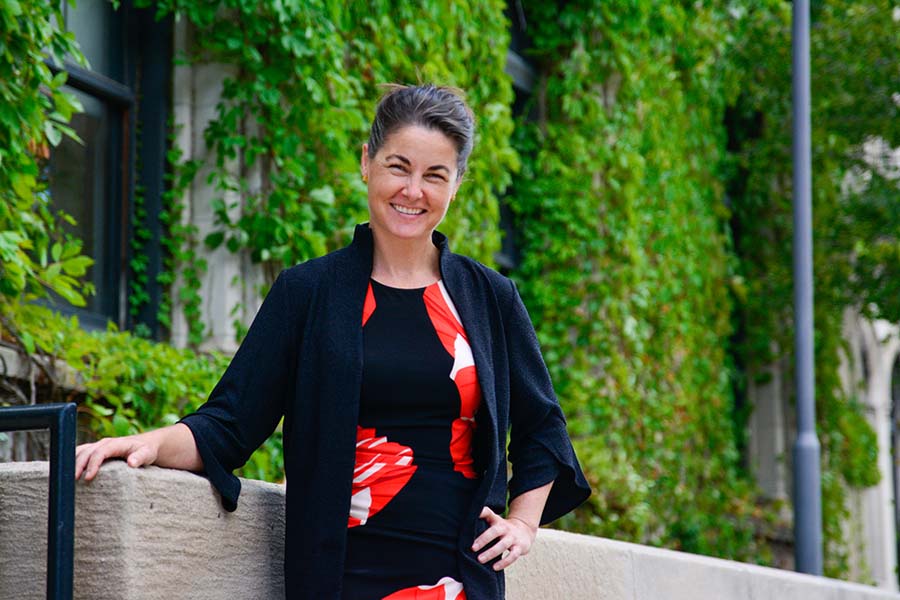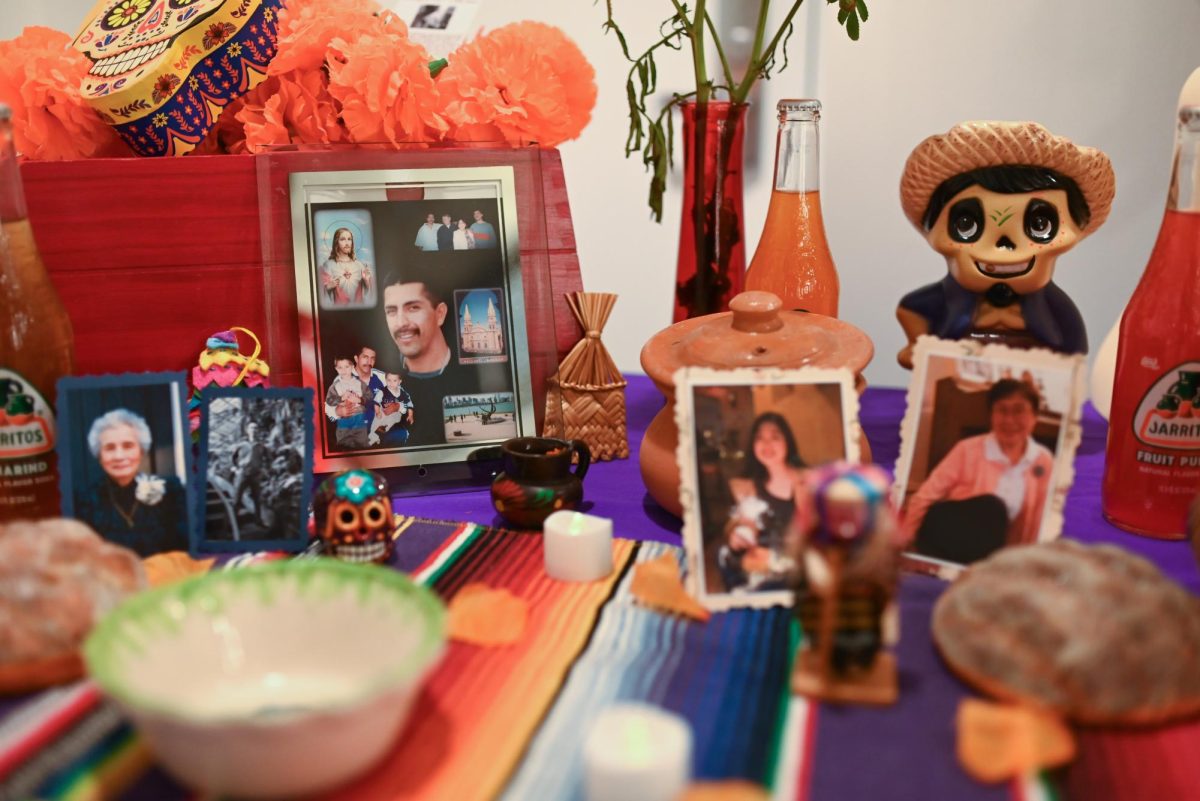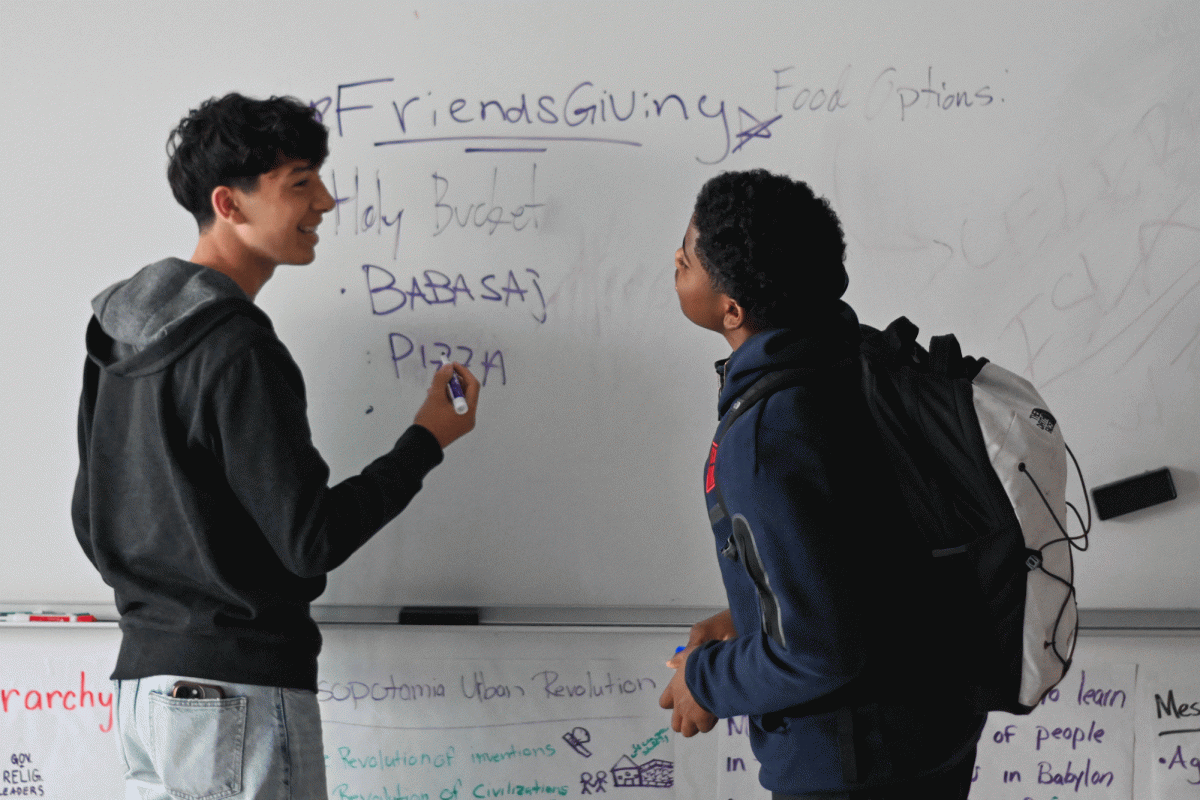Victoria Jueds leads through listening
Victoria Jueds, director of schools, poses outside Judd Hall. Ms. Jueds is carrying years of experience in advocacy and leadership in education into the start of the school year.
October 1, 2021
Upon hearing the familiar sirens, hundreds of students lined up in groups in front of their teachers during the fire drill on Sept. 22. For most Laboratory Schools students and faculty, it was a mildly annoying and standard routine — not so for Laboratory Schools Director Victoria “Tori” Jueds.
When Ms. Jueds (pronounced Judds) looked at the sea of faces, she saw opportunities to hear people’s stories and gather valuable input. She asked math teachers about their experiences returning to in-person teaching, talked to the chair of the music department about how music can help build communities, and inquired about a student’s interests.
Ms. Jueds sees herself as a steward of the community who considers her background for listening to stories and advocating on behalf of marginalized people as leadership strengths.
Early in her career, Ms. Jueds never expected to go into education. Instead, after graduating Harvard College, she worked for political candidates on the local, state and federal levels.
“The issue that I would say pulled me into politics early on was reproductive rights, particularly for women,” she said. “Bodily autonomy from government is such an important American value that this single issue played a huge role in my decision to work in politics.”
After a few years working in politics, however, Ms. Jueds says she realized that much of the change she was interested in happened through the judicial system, where she could directly advocate for people with disadvantaged backgrounds. Consequently, she studied at Harvard Law School and became a law clerk who dealt with civil liberty and workplace discrimination cases.
“I dealt with cases about topics I was interested in, which was a great feeling,” she said. “I also fell in love with legal procedure, which I just find fascinating.”
While Ms. Jueds enjoyed her time working as a law clerk because she was able to advocate for people experiencing injustice, she was uncomfortable with the lack of one-on-one time she had with those involved with the cases she worked on.
“That’s when I really discovered how important listening to people and their stories was to me personally,” she said.
Upon teaching law at George Washington Law School in Washington, D.C., she discovered that education quenched her thirst for getting to know people and their stories.
“While teaching, I got to know the students and I was fascinated by the range of their backgrounds,” she said. “By talking to these students I learned that a big part of working in education is helping disadvantaged people, since students aren’t always empowered or on equal footing.”
After 11 years working at the graduate and undergraduate levels at GW and Princeton respectively, Ms. Jueds took a head of school position at Westtown Academy in West Chester, Pennsylvania for four years, before coming to Lab in August.
“I transitioned to being a head of school because I wanted to build and maintain a diverse community of young scholars,” she said. “As director, I embrace the idea of stewardship. I want to help the schools live up to the values in our mission statement.”
Like Lab, Westtown students created an Instagram account during the summer of 2020 that highlighted stories of racism from the community. Ms. Jueds’ experiences grappling with systemic racism at Westtown taught her the importance of proactively seeking out stories of injustice.
“It’s clearly not enough to hold the door open for students to make complaints,” she said. “Students turn to social media because they feel like they can’t trust, or they don’t feel comfortable sharing that information with the school. At Lab, I want to create environments that actively invite students to share their experiences with the school whether it’s at an assembly or smaller groups.”
To start, Ms. Jueds plans to meet with DEI peer coordinators and Nicole Williams, Lab’s new director of diversity, equity and inclusion. She’s especially excited to talk to the peer coordinators to get their first-hand experiences of racism at Lab.
“Everyday in-person interactions play a big role in fostering collaboration and kindness,” she said. “Things like the ‘aha’ moments you get after getting the perspective of someone new, or the lessons you gain by hearing their story are not only entertaining, but, from my perspective, they’re key to leadership.”
Ms. Jueds says that she gains valuable insights from these interactions that help her set priorities and make strategic decisions later on.
“To me,” Ms. Jueds said, “making common sense decisions means getting all the information about a topic as I can and being truly open to everyone’s perspectives.”












